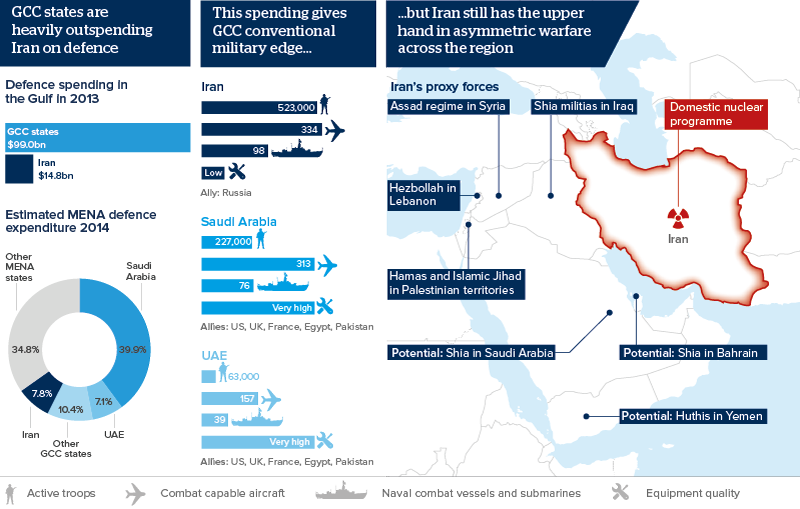Nuclear deal alters balance in Iran-Gulf 'Cold War'
By removing the threat of US military action, the nuclear deal will empower Iran and spur Gulf Arab activism

Source: IISS Military Balance 2015
Outlook
A deal would reinforce the GCC's sense of isolation against what it views as dangerous Iranian expansionism, and spur Saudi Arabia and the UAE to escalate their newly assertive military postures in the region. With their rearmament programmes almost complete, the GCC has an unassailable conventional military edge. Their focus will now be on catching up with Iran's asymmetric capabilities, particularly in terms of the strength of local proxies and access to nuclear technology.
However, this activism carries heavy risks for both the GCC and the region, namely the entanglement of Gulf militaries in open-ended campaigns; increased risk of a direct confrontation with Iran; proliferation of local conflicts; and empowerment of militias at the expense of central governments.
Impacts
- Gulf states will step up demands for more advanced weapons systems and stronger military guarantees from the United States.
- They may also begin to build civilian nuclear research programmes if Iran threatens nuclear weaponisation.
- Direct conflict would probably occur as amphibious war where technology, naval fleet and foreign support count more than troop numbers.
- Differences over ideology and agenda will hinder Saudi efforts to build a strong regional alliance of Sunni states.
See also
- Iran's military will keep asymmetric advantage in Gulf - Dec 15, 2015
- Spending drive gives Gulf military edge over Iran - Jun 3, 2015
- More graphic analysis